#b2b market research companies in india
Explore tagged Tumblr posts
Text
Difference Between B2B And B2C | B2B Market Research Company
Looking to understand the difference between B2B and B2C? Learn more about the differences between B2B and B2C, and how to optimize your marketing strategies.
#top market research companies#hyderabad market research companies#best market research companies#marketing research companies in india#market research company in india#b2b market research consulting#market survey companies in india#Market Research Company and Solution#market research company hyderabad#b2b market research firms in India#b2b market research companies in india
0 notes
Text
0 notes
Text

High Beam Global is among the best market research companies in India, providing exceptional data insights across 70+ countries and in 30+ languages. Our dedicated, multi-lingual teams conduct in-depth research across all major sectors, ensuring you receive precise and actionable insights tailored to your unique needs. With our extensive global reach and deep industry expertise, we empower your strategic decisions with unparalleled precision and depth.
Discover how High Beam Global can support your business and drive growth. Visit our website for more information.
#market research#business growth#industry experts#industry survey#online survey#best market research companies in india#top market research companies in india#B2B market research companies#hbg#high beam global
1 note
·
View note
Text
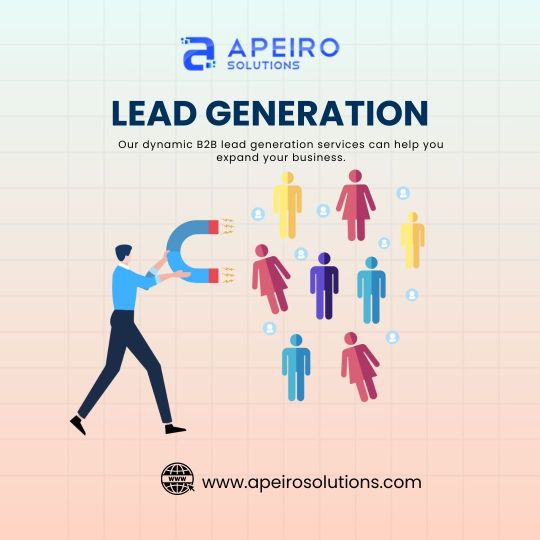
Lead Generation Services in India
Boost your business growth with our expert lead generation services in India. Get high-quality leads and increase your sales with our professional lead generation services in India.
#lead generation#top market research companies in india#best b2b lead generation services#top lead generation companies in india#business growth#leads generation#top lead generation companies & services#data analytics and consulting services
0 notes
Text
Data-Driven Strategies to Generate High-Quality B2B Leads
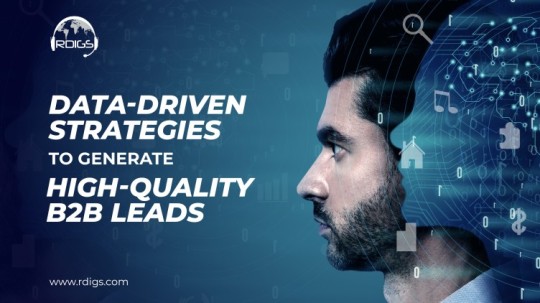
Data-driven strategies have evolved to become an absolute necessity for companies who want to create high-quality B2B leads. You need to embrace the power of B2B data to make informed decisions and tailor your approach if you want to generate high-quality B2B leads. B2B Data can help you do both. Although traditional methods of lead generation are still applicable, using them alone is not enough to maintain a competitive advantage in today's market. This is where data-driven strategies come into play.
Introduction
Since the importance of B2B data continues to rise in the modern economy. It is crucial to acquire the expertise required to harness its potential. Businesses can generate more qualified leads, improve the efficiency of their lead-generation processes, and make more well-informed decisions about their marketing initiatives all by implementing data-driven strategies. These tactics not only assist organizations in determining the appropriate audience for their messaging but also provide them the ability to customize it so that it resonates with prospective customers.
If your data can position you in the thoughts of your target audience (customers and prospects), then the work is well worth it. Else, it is nothing more than a collection of numbers that will be compiled into statistics. The challenge now is what data-driven strategies you can implement to produce more high-quality B2B leads.
In the Blog, we will discuss five key data-driven strategies that can revolutionize your B2B lead generation struggles with a focus on providing in-depth information and actionable insights to elevate your lead generation measures.
Let's quickly understand first the "Value of Data-Driven Approach In B2B Industry"
The significance of a data-driven strategy in the B2B industry resides in its ability to offer businesses important insights about their operations, customers, and market. Insights that are powered by data may provide B2B organizations with assistance in making informed choices, such as locating new business possibilities or improving the efficiency of their supply chain. This can result in higher productivity, decreased expenses, and increased profits.
Data-driven methods may assist B2B organizations in automating and streamlining their processes, therefore decreasing manual work and freeing up resources for more strategic endeavors. Data-driven lead generation gives businesses the ability to qualify leads via the use of data and analytics, therefore assisting them in identifying which prospective clients are most likely to become paying customers. This produces higher-quality leads, which is favorable for both the lead-generating company and its clients.
Identify your target audience through data segmentation
Understanding your target demographic is the first step in producing high-quality leads for your B2B sales. You will be able to find important demographics, sectors, and other criteria that make up your perfect prospect by evaluating the data you already have on your existing customers. This data allows you to segment your target audience into smaller, more manageable subgroups depending on their individual qualities. Because of this tailored strategy, you will be able to generate a unique message that will resonate with each category, which will ultimately result in increased engagement and conversion rates.
Actionable steps:
Collect and analyze data on your existing customers, such as demographics, industries, job titles, and company sizes.
Identify common patterns and characteristics among your best customers.
Segment your target audience based on these shared characteristics.
Create tailored messaging and marketing campaigns for each segment.
Leverage intent data
Intent data is information about a prospect's online behaviour, such as search queries, content consumption, and website visits. By analyzing this data, you can gain insights into their interests, pain points, and purchase intentions. Armed with this knowledge, you can tailor your marketing campaigns to address the specific needs of these prospects, making your outreach more relevant and effective. This targeted approach ensures that you engage with prospects who are genuinely interested in your product or service, ultimately leading to higher-quality leads.
Actionable steps:
Obtain intent data from third-party providers or track prospect behaviour on your website using marketing automation tools.
Analyze the intent data to understand your prospects' interests, pain points, and purchase intentions.
Create targeted marketing campaigns that address the specific needs and interests of your prospects.
Implement predictive lead scoring
Predictive lead scoring is a data-driven approach to ranking leads based on their likelihood to convert. By analysing historical data and incorporating various data points such as demographics, firmographics, and behavioural data, you can create a predictive model that assigns a score to each lead. Higher scores indicate a greater likelihood of conversion, allowing your sales team to prioritize their efforts on the most promising prospects. This data-driven approach increases efficiency and ensures a higher rate of conversion for your B2B leads.
Actionable steps:
Analyze historical data on successful conversions to identify patterns and trends.
Gather relevant data points, such as demographic, firmographic, and behavioral data, for each lead.
Develop a predictive model to assign a lead score based on these data points.
Train your sales team to prioritize leads with higher scores, maximizing the chances of conversion.
Optimize content marketing with data insights
Content marketing is a powerful tool for attracting and nurturing B2B leads. By analyzing the performance of your content, you can identify which topics, formats, and channels resonate most with your target audience. Use these insights to create data-driven content strategies that focus on high-performing topics and formats, while also experimenting with new ideas to keep your audience engaged. By consistently delivering valuable and relevant content, you can build trust and credibility with your prospects, ultimately leading to higher-quality leads.
Actionable steps:
Use analytics tools to track the performance of your content (e.g., page views, time spent, shares, conversions).
Identify high-performing topics, formats, and channels.
Create a content strategy that focuses on these high-performing areas while also testing new ideas.
Continuously monitor the performance of your content and adjust your strategy accordingly.
Utilize account-based marketing (ABM)
Account-based marketing is a targeted approach to B2B lead generation that focuses on specific high-value accounts. By leveraging data and analytics, you can identify the key decision-makers within these accounts and develop personalized marketing campaigns that address their unique needs and challenges. By concentrating your efforts on a select group of high-potential accounts, you can generate higher-quality leads and increase your chances of converting them into customers.
Actionable steps:
Identify high-value accounts that have the potential to deliver significant revenue and align with your product or service offerings.
Research these accounts to understand their needs, challenges, and key decision-makers.
Develop personalized marketing campaigns targeting the specific needs and pain points of each account.
Collaborate closely with your sales team to ensure a seamless transition from marketing engagement to sales outreach.
Wrapping Up!
The key to generating high-quality B2B leads lies in utilizing data-driven strategies that allow you to effectively target and engage with the right prospects. By leveraging data segmentation, intent data, predictive lead scoring, content marketing insights, and account-based marketing, you can create a powerful and targeted approach to your lead generation efforts. This not only ensures that your marketing and sales teams are focusing on the most promising prospects but also maximizes the return on your investment in lead generation activities.
Incorporating data-driven strategies into your B2B lead generation process may seem challenging at first, but the benefits far outweigh the initial effort. As you begin to see improved engagement, higher conversion rates, and ultimately, increased revenue growth, the value of these data-driven methods will become abundantly clear. By staying informed and adapting to the ever-evolving digital landscape, your business will be well-positioned to generate high-quality B2B leads and achieve long-term success.
To help businesses make more accurate marketing decisions, generate more effective outcomes, and craft flawless future campaigns, RD Info Global Solutions provides you with high-quality B2B lead-generation solutions. To know more drop us your queries at [email protected]
#marketing#research#leads#b2c#b2b#email#market#confirmed call back#sale#lead#top b2b lead generation companies in india#lead generation
1 note
·
View note
Text
Start E-commerce Business in India 2024
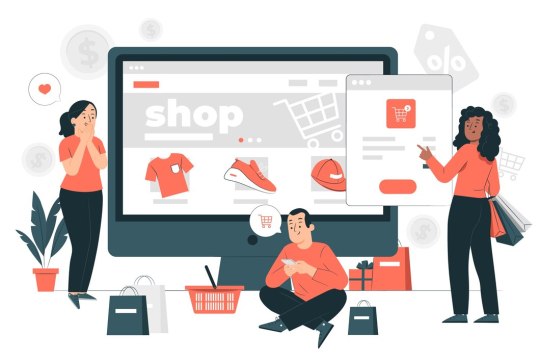
Aspects of the best in the field of Indian e-commerce, whether consumer or business-oriented, are essential to assess. 2024 is in full swing, and the e-commerce segment is as competitive as ever: it ranges from huge players competing to become market behemoths to ambitious startups ready to turn the retail market on its head.
In India, there are top and popular e-commerce marketplaces where sellers can sell their products and services to the larger customers base available on these channels.
Before starting the e-commerce business, sellers or entrepreneurs should be aware of below mentioned aspects important to start a online business on the basis of the type of e-commerce business they want to start.
Research Your E-commerce Business Idea: First thing to do a thorough research about your business idea, study about your competitors, cost analysis, profit analysis, average selling price of your niche products, etc in the market. These researches helps you to get deep knowledge about the business your are planning to start.
Target Audience: After doing the research about the business idea, sellers on companies need to look up for their target audience. Target audience means those people who can convert paid customers for business in future.
Choose Right Marketplace: In this step seller needs to decide which is the best platform to start a online e-commerce business. E-commerce business have four types: B2B, B2C, C2C, C2B therefore, on the basis of type of e-commerce business and target audience and on the basis of business registration process sellers needs to decide the right marketplace.
Whether you are the new seller, or the existing one, relaunching your e-commerce business, or need guidance to make your business successful then these aspects can help you.
#ecommerce#marketing#business#startup#sales#branding#buyers and sellers#ecommerce marketing#ecommerce business#ecommerce solutions#ecommerce website design#ecommerce store
3 notes
·
View notes
Text
Benefits of Digital Marketing for Automotive Businesses
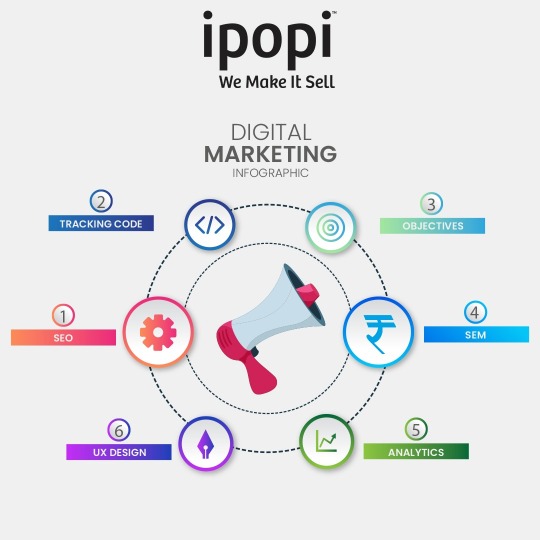
Digital marketing plays a very vital role in the automotive industry. The automotive industry often uses digital ads and has reached a new height in terms of success. In a nutshell, this can be said to be a meaningful process which is undeniably an integral part of a healthy business process.
For B2B automotive businesses to succeed, digital marketing is essential.
For Effective and Efficient Digital Marketing Services and for Social Media Marketing Services, Visit Us!
Ipopi Ads – # 1 Digital Marketing Company in Mysore.
Sales are increased as a result of effective brand building. It helps to Boost Sales and Build Brands.
The B2B automotive sector should ultimately execute an effective Omnichannel Strategy for greater market penetration.
The automotive industry is a very fast growing industry. It experienced a lot of technological changes, which forced it to adopt the use of digital marketing to stay competitive in this rapidly evolving market.
We are the No 1 Digital Marketing Agencies in Mysore. We are helping the Automotive Industries in their Digital Marketing Presence.
Ipopi Ads helps in providing Digital Marketing Strategies for Car Dealers In India to get more number of Customers and also helps in Better Conversions and Sales.
Automotive Industries is a leader in innovation, technology and customer service. This puts the focus on digital marketing, where the customers can get access to new features and product availability.
Digital Marketing is the process of integrating all digital media channels in order to create, maintain and manage customer interaction through the use of technology. The focus on Digital Marketing is to have a strong understanding of digital marketing and its approaches to consumer engagement.
Ipopi ads – #1 Social Media Marketing Company in Mysore.
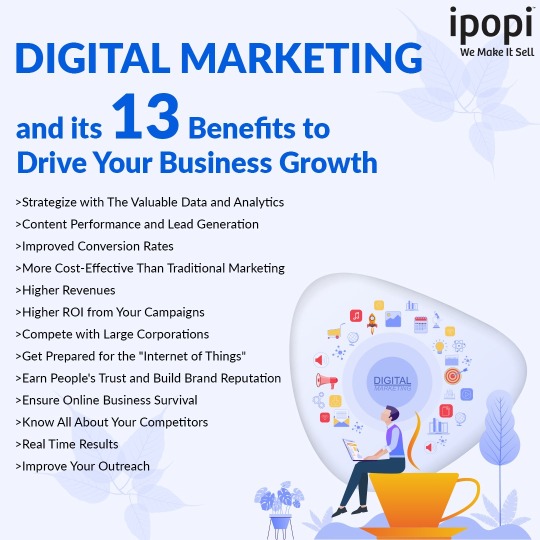
The benefits of digital marketing for the automotive industry include: –
Online reputation management can be enhanced through digital marketing.
Brand loyalty can be maintained through constant engagement on social media.
Digital marketing can help you dominate search engine results.
Keeping Customers engaged on social media helps brands to Build Customer Loyalty.
You can measure the results and outcomes of your digital marketing campaigns.
Through social media, digital marketing identifies potential influencers in the automobile industry.
Digital marketing helps to enhance online reputation management.
Constant customer engagement on social media helps to retain brand loyalty.
Digital marketing can help you dominate search engine results. Interested buyers search for potential automobile brands online using generic keywords.
From promoting content, Posting and Handling Social Media pages, Ipopi Ads can help you in digital marketing for businesses.
“ Ipopi Ads in Mysore are helping Automotive Brands like – KIA, Hyundai, Volkswagen, BMW, Benz, Toyota, Nissan, Honda, and TVS Brands in Digital Marketing”.
We will help your business grow by making you stand out from the crowd. We take the time to understand your business, objectives and goals before we set up anything. This helps us create a special strategy designed to match your needs that is dedicated to your success.
Ipopi ads – Top Digital Marketing Agency in Mysore.
We at Ipopi Ads – # 1 Digital Marketing Company in India are riding on the Digital Marketing swell and working with all our clients to help them work their Digital presence on a full scale.
Contact Us for more info!
How Important Is Digital Marketing in the Automotive Industry?
Although most vehicle purchases are still carried out in dealerships, the research that consumers conduct online beforehand is growing.
There is a vast amount of information online about products, including product specifications and customer reviews as well as comparisons between similar items from different manufacturers.
Consumers are exposed to marketing content throughout their buying process, and this exposure can impact the decisions they make before visiting a dealership.
Digital Marketing for the Automotive Industry enables business owners to easily promote their products and services, enabling them to be more competitive in the business.
Ipopi Ads provide Digital Marketing Strategies for Car Dealerships in India.
Why is Digital Marketing essential for the automotive industry?
Digital marketing is essential for automotive industries, as it allows them to keep up with the competition and stand apart from others. Ensure your branding extends to every aspect of your business.
The use of digital media is increasing over recent years. Consumers are more dependent on the internet when it comes to researching and purchasing products.
Though the actual purchases and sales happen in dealerships, the research is mostly done on the internet.
Digital marketing is a valuable tool in the automotive industry. It helps in generating new leads, enhancing and improving customer retention, brand recognition and value, as well as increasing purchases. Digital marketing gets the attention of customers and increases sales for companies in the auto industry.
Automotive Industries is a leader in innovation, technology and customer service. This puts the focus on digital marketing, where the customers can get access to new features and product availability.
Successful Digital Marketing & Effective Brand Building Helps in Greater Visibility, Enhancing Brand Awareness, Brand Differentiation, Increasing Engagement, Customer Loyalty, and Conversion Value and Product Value.
Ipopi ads – Best Digital Marketing Company in Mysore.
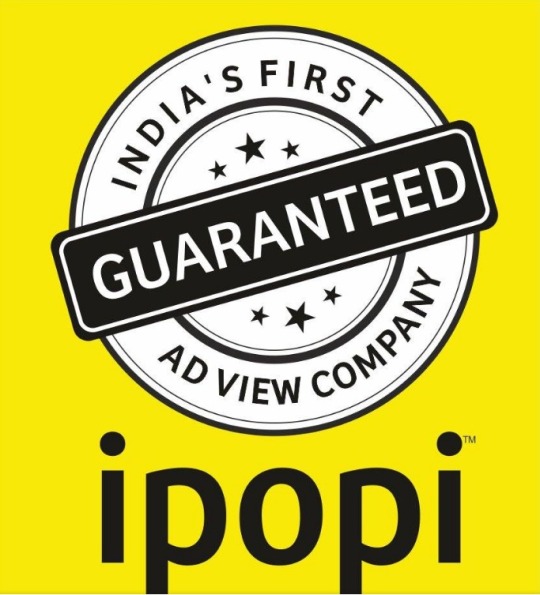
#marketing#branding#cars#graphic design#digital marketing#social media#social media marketing#social media management#automotive#automotive businesses#automotive industry#digitalmarketing#online marketing#internet marketing#best digital marketing company in mysore#top digital marketing agencies#top digital marketers in india#top digital marketing services#top digital marketing company in mysore#SEO#local seo#search engine optimisation services#google ads#google maps#google advertising#google adwords#facebook#instadaily#instalove#instagram
5 notes
·
View notes
Text
Grape Seed Oil Market Analysis: Industry Trends, Market Size, and Competitive Landscape
The global grape seed oil market size is anticipated to reach USD 1.08 billion by 2030, as per a new report by Grand View Research, Inc. The market is projected to grow at a CAGR of 9.9% from 2023 to 2030. The growth is majorly driven by the rising demand for the product from various end-use industries like food & beverages, healthcare, and cosmetics & personal care.
The current and future growth of the market is due to the surging problems associated with an unhealthy lifestyle of most of the population, such as joint issues, and some of the cardiovascular diseases, which have led to a rise in high-quality product formulation. Moreover, the increasing number of investments by key manufacturers in the field of research and development with respect to product formation has improved the growth opportunities for the product market.
Multinational corporations globally have established a global grape seed oil supply chain comprising in-house supply channels or third-party distributors. The product is supplied by the business-to-business (B2B) and business-to-consumer (B2C) supply chain through wholesalers and e-commerce platforms. It is also provided to different end-use industries by companies that have direct agreements or third-party supply agreements with them.
The impact of the European geopolitical conflict is negative worldwide in terms of hiked product prices, raw material and labor shortages, and supply disruptions. The trade activities in both key countries involved in this conflict, that is, Russia and Ukraine during the first few weeks of the war were halted and this impacted oil prices worldwide.
Grape Seed Oil Market Report Highlights
The market is anticipated to witness growth with a CAGR of 9.9% from 2023 to 2030. This is attributed to the growing trend among consumers to opt for natural and plant-based products, including oils
In terms of extraction process, the chemical extraction segment is anticipated to register the fastest CAGR of 10.1% from 2023 to 2030, owing to the high extraction of almost 97% to 99% of grape seed oil from the grape seeds
Other processes used for the extraction include supercritical fluid extraction. Supercritical fluid extraction is not used at a large scale owing to problems related to the transferring of seeds in and out of high-pressure extractors. In this process, small quantities of seeds are used for extracting oil in semi-batch mode with the fluid flowing through a fixed bed of material
In terms of application, the personal care & cosmetics segment is anticipated to register the fastest CAGR of 10.3% from 2023 to 2030, due to the extensive usage of the product in the industry because of its anti-acne, anti-microbial, and anti-inflammatory properties
Many crop seed oils like grape seed oil are treated for genetic improvement using modern biotechnology. This is undertaken to improve the yield with high precision and comparatively lower uncertainties. Such products, because of their structures, are used in the cosmetics industry. In addition, hydrogenated grape seed oil is extensively used in the cosmetics industry as a skin-conditioning agent
In terms of region, the Asia Pacific region is anticipated to register the fastest CAGR of 10.7% during the forecast period. This high rate of growth is because of the high demand from the food industry, especially from countries like India, Japan, and China
Grape Seed Oil Market Segmentation
Grand View Research has segmented the global grape seed oil market based on extraction process, application, and region:
Grape Seed Oil Extraction Process Outlook (Volume, Tons; Revenue, USD Thousand, 2018 - 2030)
Mechanically by Pressing
Chemically Extracted
Others
Grape Seed Oil Application Outlook (Volume, Tons; Revenue, USD Thousand, 2018 - 2030)
Food Industry
Natural
Conventional
Personal Care & Cosmetics
Natural
Conventional
Supplements & Healthcare
Natural
Conventional
Others
Natural
Conventional
Grape Seed Oil Regional Outlook (Volume, Tons; Revenue, USD Thousand, 2018 - 2030)
North America
US
Canada
Europe
UK
Germany
France
Italy
Spain
Russia
Turkey
Asia Pacific
China
India
Japan
South Korea
Australia
New Zealand
Latin America
Mexico
Brazil
Argentina
Chile
Columbia
Middle East & Africa
Saudi Arabia
UAE
Egypt
South Africa
Key Players in the Grape Seed Oil Market
Mediacovrac
BORGES AGRICULTURAL & INDUSTRIAL EDIBLE OILS, S.A.U.
Tampieri
Gustav Heess Oleochemische Erzeugnisse GmbH
OLITALIA S.R.L.
Salute Santé
Oleificio Salvadori
Henan Province Kunhua Biological Technology Co., Ltd.
Alvinesa Natural Ingredients
VedOils
Order a free sample PDF of the Grape Seed Oil Market Intelligence Study, published by Grand View Research.
0 notes
Text
Best SEO Company for Renewable Energy and Manufacturing Industries
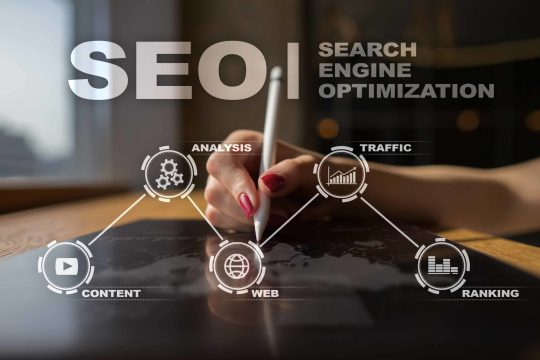
Why SEO Matters for Renewable Energy & Manufacturing Businesses
If you're in renewable energy or manufacturing, getting noticed online is a big deal. With so much competition, having the right SEO strategy helps people find your business, brings in potential customers, and boosts revenue. That’s where a trusted SEO company in Ahmedabad like Global Vincitore comes in - we know how to get your website ranking high and in front of the right audience.
Common Challenges in SEO for These Industries
The renewable energy sector is growing fast, and competition is tough. Businesses offering solar, wind, and other green energy solutions need strong SEO services to stand out. Similarly, manufacturing businesses often struggle to reach B2B clients who use search engines to find suppliers. Here are some common SEO challenges:
Low Visibility – Not showing up on the first page of search results.
Technical SEO Issues – Slow websites or poor optimization hurting rankings.
Weak Content Strategy – Content that doesn’t connect with the right audience.
Local SEO Problems – Missing out on location-based searches.
The right SEO services in Ahmedabad can solve these issues and help your business grow.
How Global Vincitore Can Help
At Global Vincitore, we create SEO strategies that work specifically for renewable energy and manufacturing businesses. Here’s how we do it:
1. Smart Keyword Optimization
The right keywords help your business get found. Our team researches and integrates high-ranking keywords like:
Solar Energy SEO – Terms like solar panel manufacturers, best solar energy company, and renewable energy solutions.
Manufacturing Industry SEO – Keywords like industrial manufacturing services, B2B manufacturing solutions, and best manufacturing company in India.
Adding these terms to your website, blogs, and meta descriptions brings in high-quality leads.
2. Engaging & Optimized Content
A well-structured website with engaging content is key for SEO success. We help with:
Blog Posts – Covering latest trends in renewable energy and manufacturing innovations.
Website Content – Ensuring your pages follow SEO best practices.
Case Studies & Whitepapers – Showcasing expertise in renewable energy and manufacturing solutions.
3. Fixing Technical SEO Issues
Technical SEO makes sure your site runs smoothly. We focus on:
Faster Website Speeds – Reducing load time to keep visitors engaged.
Mobile-Friendly Design – Making sure your site works on all devices.
Schema Markup – Adding structured data to improve search rankings.
4. Building Authority with Link Building & Off-Page SEO
Ranking high on search engines means building credibility. We help by:
Getting Quality Backlinks – Connecting with high-authority industry websites.
Guest Blogging – Publishing content on reputable sites.
Press Releases & Industry Mentions – Strengthening your industry presence.
5. Local SEO for Better Visibility
Want to attract customers in a specific location? We focus on Local SEO by:
Optimizing Google My Business Listings – Making sure your business details are correct.
Using Localized Keywords – Targeting searches like best solar company in Ahmedabad and top manufacturing company in India.
Encouraging Customer Reviews – Managing your online reputation for trust and credibility.
More Than Just SEO – A Full Digital Marketing Package
SEO is just one part of the bigger picture. Global Vincitore also offers:
Social Media Marketing – Expanding your reach on LinkedIn, Facebook, and Instagram.
Pay-Per-Click (PPC) Advertising – Getting fast results with paid ads.
Conversion Rate Optimization (CRO) – Making your website better at turning visitors into customers.
Why Work with Global Vincitore?
With 9+ years of experience, Global Vincitore has helped businesses in renewable energy, machine manufacturing, and FMCG industries boost their online presence. What makes us different?
SEO Experts Who Understand Your Industry
Customized SEO Plans for Your Business Goals
A Results-Driven Approach Focused on Real Growth
Ready to Grow Your Business?
Looking for the best SEO company in Ahmedabad for your renewable energy or manufacturing business? Contact us today to get a customized SEO strategy that delivers real results.
A strong SEO strategy means better visibility, more customers, and steady business growth. Let’s make it happen!
#best SEO company in Ahmedabad#SEO services in Ahmedabad#local SEO services#digital marketing company in Ahmedabad#SEO experts in Ahmedabad#renewable energy SEO#manufacturing industry SEO#best SEO company for renewable energy#technical SEO services#on-page SEO#off-page SEO#link building services#content marketing for SEO#Google My Business optimization#PPC advertising#social media marketing
0 notes
Text
Consumer Research | Types and Process of Consumer Research
Learn about consumer research types and processes. Understanding your target market and making data-driven decisions is key to success.
#top market research companies#hyderabad market research companies#best market research companies#marketing research companies in india#market research company in india#b2b market research consulting#market survey companies in india#Market Research Company and Solution#market research company hyderabad#b2b market research firms in India#b2b market research companies in india
0 notes
Text
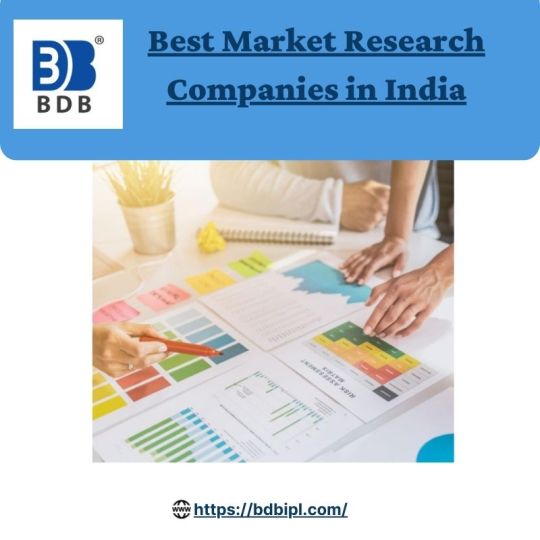
BDB India is a Best Best Market Research Companies in India
BDB India Private Limited is a leading global business strategy consulting and market research company in India. Since 1989, BDB has been providing clients with solutions to expand their businesses in the Indian and international marketplace. We are an ISO certified company. BDB India is the leading global business strategy consulting and market research firm for automotive industry. BDB India is Best Best Market Research Companies in India
View More at: https://bdbipl.com/
0 notes
Text
Introduction
The USA is one of the largest import markets in the world, making it a lucrative destination for Indian exporters. With a diverse range of industries and a high demand for quality products at competitive prices, exporting to the USA can be a game-changer for businesses in India. However, navigating the complex regulatory landscape, ensuring compliance, and optimizing costs are crucial to profitability.

In this guide, we will take you through a step-by-step process on how to export to the USA profitably. Whether you are a small business or an established exporter in India, this guide will help you maximize your opportunities while minimizing risks.
Understanding the Export Market in the USA
Who is the Biggest Exporter to the USA?
The USA imports goods from various countries, but the biggest exporters to the USA include:
China – Electronics, machinery, textiles
Mexico – Vehicles, machinery, agricultural products
Canada – Oil, minerals, vehicles
India – Pharmaceuticals, textiles, gems, IT services
India is a significant trade partner, with exports to the USA growing steadily due to strong demand in various sectors. Understanding market demand and key competitors will help you position your products effectively.
Steps to Export to the USA from India
1. Identify Profitable Products to Export
Certain products have a high demand in the USA, including:
Pharmaceuticals
Textiles & Apparel
Gems & Jewelry
Engineering Goods
Spices & Agro Products
Handicrafts & Home Decor
Conduct market research to determine demand trends, competition, and pricing strategies before finalizing your export product.
2. Register Your Export Business
To legally export from India, follow these steps:
Register your company with the Ministry of Corporate Affairs (MCA).
Obtain an Importer Exporter Code (IEC) from the Directorate General of Foreign Trade (DGFT).
Register with the GST Department for tax compliance.
Obtain necessary certifications depending on your product, such as FDA approval for pharmaceuticals.
3. Comply with USA Import Regulations
The USA has stringent import regulations. Ensure compliance with:
Food and Drug Administration (FDA) for food, drugs, and cosmetics.
US Customs and Border Protection (CBP) for tariff classifications and duties.
Consumer Product Safety Commission (CPSC) for safety standards.
Environmental Protection Agency (EPA) for eco-friendly products.
Hiring a compliance expert or consultant can help navigate regulatory complexities and avoid penalties.
4. Find Reliable Buyers and Distributors
Connecting with the right buyers and distributors is key to success. Consider:
B2B platforms like Exporters Worlds, IndiaMART, and Global Sources.
Trade fairs and exhibitions such as MAGIC Las Vegas (apparel) or JCK Las Vegas (jewelry).
Chambers of commerce and export promotion councils for networking.
Building strong relationships and offering competitive pricing will help secure long-term business deals.
5. Choose the Right Shipping and Logistics Partner
Efficient logistics ensure timely delivery and cost-effectiveness. Key factors to consider:
Select between air freight (fast but expensive) or sea freight (cost-effective for bulk orders).
Work with reliable freight forwarders like DHL, FedEx, or Maersk.
Ensure proper packaging and labeling to meet US standards.
Get insurance coverage to mitigate transit risks.
6. Manage Costs and Optimize Pricing
To maintain profitability, focus on:
Reducing costs through bulk shipping and negotiating with suppliers.
Taking advantage of export incentives like MEIS (Merchandise Exports from India Scheme).
Setting competitive yet profitable pricing based on market demand and competitor analysis.
7. Handle Payments Securely
International transactions should be secure and hassle-free. Consider:
Letter of Credit (LC) for guaranteed payments.
PayPal, Stripe, or international bank transfers for online transactions.
Partnering with financial institutions that offer export credit insurance.
Common Challenges and How to Overcome Them
Challenge 1: Stringent Compliance Regulations
Solution: Work with legal experts and compliance consultants who specialize in US import laws.
Challenge 2: High Shipping and Tariff Costs
Solution: Optimize logistics, use Free Trade Agreements (FTAs), and explore bonded warehouses in the USA.
Challenge 3: Finding Trustworthy Buyers
Solution: Leverage trade fairs, B2B portals, and government trade facilitation programs.
Conclusion
Exporting to the USA from India can be a highly profitable venture if done strategically. By choosing the right products, ensuring compliance, optimizing logistics, and building strong buyer relationships, Indian exporters can establish a successful and sustainable export business.
If you found this guide helpful, subscribe to our newsletter for more export insights, or leave a comment below with your questions!
#Exporters in India#How to export from India to USA#Profitable export business to USA#Indian export products in demand in USA#USA import regulations for Indian exporters#Best Indian products to export to USA#Export business opportunities in USA#Indian exporters to USA market#Shipping and logistics for USA exports#USA import compliance for Indian businesses
0 notes
Text
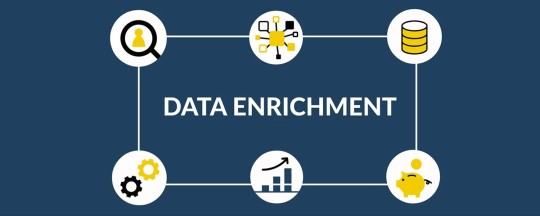
Top Data Enrichment Companies
Discover leading data enrichment companies helping businesses thrive. Boost your data quality and gain valuable customer insights with trusted providers.
#leads generation#data analytics and consulting services#top lead generation companies & services#top market research companies in india#best b2b lead generation services#top lead generation companies in india#Data Enrichment
0 notes
Text
Data-Driven Strategies to Generate High-Quality B2B Leads
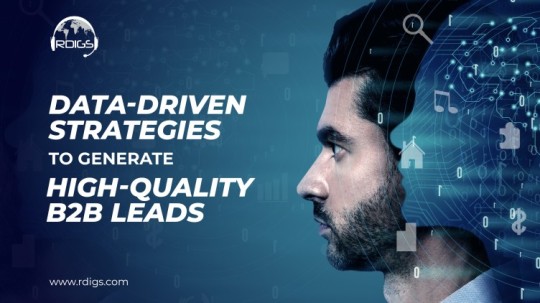
Data-driven strategies have evolved to become an absolute necessity for companies who want to create high-quality B2B leads. You need to embrace the power of B2B data to make informed decisions and tailor your approach if you want to generate high-quality B2B leads. B2B Data can help you do both. Although traditional methods of lead generation are still applicable, using them alone is not enough to maintain a competitive advantage in today's market. This is where data-driven strategies come into play.
Introduction
Since the importance of B2B data continues to rise in the modern economy. It is crucial to acquire the expertise required to harness its potential. Businesses can generate more qualified leads, improve the efficiency of their lead-generation processes, and make more well-informed decisions about their marketing initiatives all by implementing data-driven strategies. These tactics not only assist organizations in determining the appropriate audience for their messaging but also provide them the ability to customize it so that it resonates with prospective customers.
If your data can position you in the thoughts of your target audience (customers and prospects), then the work is well worth it. Else, it is nothing more than a collection of numbers that will be compiled into statistics. The challenge now is what data-driven strategies you can implement to produce more high-quality B2B leads.
In the Blog, we will discuss five key data-driven strategies that can revolutionize your B2B lead generation struggles with a focus on providing in-depth information and actionable insights to elevate your lead generation measures.
Let's quickly understand first the "Value of Data-Driven Approach In B2B Industry"
The significance of a data-driven strategy in the B2B industry resides in its ability to offer businesses important insights about their operations, customers, and market. Insights that are powered by data may provide B2B organizations with assistance in making informed choices, such as locating new business possibilities or improving the efficiency of their supply chain. This can result in higher productivity, decreased expenses, and increased profits.
Data-driven methods may assist B2B organizations in automating and streamlining their processes, therefore decreasing manual work and freeing up resources for more strategic endeavors. Data-driven lead generation gives businesses the ability to qualify leads via the use of data and analytics, therefore assisting them in identifying which prospective clients are most likely to become paying customers. This produces higher-quality leads, which is favorable for both the lead-generating company and its clients.
Identify your target audience through data segmentation
Understanding your target demographic is the first step in producing high-quality leads for your B2B sales. You will be able to find important demographics, sectors, and other criteria that make up your perfect prospect by evaluating the data you already have on your existing customers. This data allows you to segment your target audience into smaller, more manageable subgroups depending on their individual qualities. Because of this tailored strategy, you will be able to generate a unique message that will resonate with each category, which will ultimately result in increased engagement and conversion rates.
Actionable steps:
Collect and analyze data on your existing customers, such as demographics, industries, job titles, and company sizes.
Identify common patterns and characteristics among your best customers.
Segment your target audience based on these shared characteristics.
Create tailored messaging and marketing campaigns for each segment.
Leverage intent data
Intent data is information about a prospect's online behaviour, such as search queries, content consumption, and website visits. By analyzing this data, you can gain insights into their interests, pain points, and purchase intentions. Armed with this knowledge, you can tailor your marketing campaigns to address the specific needs of these prospects, making your outreach more relevant and effective. This targeted approach ensures that you engage with prospects who are genuinely interested in your product or service, ultimately leading to higher-quality leads.
Actionable steps:
Obtain intent data from third-party providers or track prospect behaviour on your website using marketing automation tools.
Analyze the intent data to understand your prospects' interests, pain points, and purchase intentions.
Create targeted marketing campaigns that address the specific needs and interests of your prospects.
Implement predictive lead scoring
Predictive lead scoring is a data-driven approach to ranking leads based on their likelihood to convert. By analysing historical data and incorporating various data points such as demographics, firmographics, and behavioural data, you can create a predictive model that assigns a score to each lead. Higher scores indicate a greater likelihood of conversion, allowing your sales team to prioritize their efforts on the most promising prospects. This data-driven approach increases efficiency and ensures a higher rate of conversion for your B2B leads.
Actionable steps:
Analyze historical data on successful conversions to identify patterns and trends.
Gather relevant data points, such as demographic, firmographic, and behavioral data, for each lead.
Develop a predictive model to assign a lead score based on these data points.
Train your sales team to prioritize leads with higher scores, maximizing the chances of conversion.
Optimize content marketing with data insights
Content marketing is a powerful tool for attracting and nurturing B2B leads. By analyzing the performance of your content, you can identify which topics, formats, and channels resonate most with your target audience. Use these insights to create data-driven content strategies that focus on high-performing topics and formats, while also experimenting with new ideas to keep your audience engaged. By consistently delivering valuable and relevant content, you can build trust and credibility with your prospects, ultimately leading to higher-quality leads.
Actionable steps:
Use analytics tools to track the performance of your content (e.g., page views, time spent, shares, conversions).
Identify high-performing topics, formats, and channels.
Create a content strategy that focuses on these high-performing areas while also testing new ideas.
Continuously monitor the performance of your content and adjust your strategy accordingly.
Utilize account-based marketing (ABM)
Account-based marketing is a targeted approach to B2B lead generation that focuses on specific high-value accounts. By leveraging data and analytics, you can identify the key decision-makers within these accounts and develop personalized marketing campaigns that address their unique needs and challenges. By concentrating your efforts on a select group of high-potential accounts, you can generate higher-quality leads and increase your chances of converting them into customers.
Actionable steps:
Identify high-value accounts that have the potential to deliver significant revenue and align with your product or service offerings.
Research these accounts to understand their needs, challenges, and key decision-makers.
Develop personalized marketing campaigns targeting the specific needs and pain points of each account.
Collaborate closely with your sales team to ensure a seamless transition from marketing engagement to sales outreach.
Wrapping Up!
The key to generating high-quality B2B leads lies in utilizing data-driven strategies that allow you to effectively target and engage with the right prospects. By leveraging data segmentation, intent data, predictive lead scoring, content marketing insights, and account-based marketing, you can create a powerful and targeted approach to your lead generation efforts. This not only ensures that your marketing and sales teams are focusing on the most promising prospects but also maximizes the return on your investment in lead generation activities.
Incorporating data-driven strategies into your B2B lead generation process may seem challenging at first, but the benefits far outweigh the initial effort. As you begin to see improved engagement, higher conversion rates, and ultimately, increased revenue growth, the value of these data-driven methods will become abundantly clear. By staying informed and adapting to the ever-evolving digital landscape, your business will be well-positioned to generate high-quality B2B leads and achieve long-term success.
To help businesses make more accurate marketing decisions, generate more effective outcomes, and craft flawless future campaigns, RD Info Global Solutions provides you with high-quality B2B lead-generation solutions. To know more drop us your queries at [email protected]
#b2b#marketing#sale#research#leads#b2c#confirmed call back#lead#email#market#top b2b lead generation companies in india#b2b appointment setting services
1 note
·
View note
Text
Brazil, Russia, and India are the new opportunity grounds for Xenografts market players
According to a recent research, Industry revenue for Xenografts is expected to rise to $5.6 billion by 2035 from $2.3 billion of 2024. U.S., Germany and China are the top 3 markets and combinely holds substantial demand share. The revenue growth of market players in these countries is expected to range between 6% and 8.6% annually for period 2025 to 2035.
Industry transition including shift towards personalized medicine and advancements in xenotransplantation, are transforming the supply chain of Xenografts market. In the realm of sequencing progress is rapidly growing; xenograft procedures are undergoing a notable shift towards personalized medicine tailored to individual cancer mutations of patients. A pivotal step in transforming cancer treatments for the betterment of all involved parties. This shift is exemplified by the integration of xenograft technology, in systems or organ on a chip crafting patient specific tumor models that enhance treatment precision and minimize the trial and error process often linked with conventional therapeutic approaches. The shift is having an effect on the pharmaceutical and biotechnology sectors as it boosts the need for xenograft usage, in drug advancement and personalized medicine studies.
Check detailed report here - https://datastringconsulting.com/industry-analysis/xenografts-market-research-report
Research Study addresses the market dynamics including opportunities, competition analysis, industry insights for Product Type (Human, Animal), Application (Oncology Research, Regenerative Medicine, Drug Discovery, Other Applications, Others) and Technology (Polymerase Chain Reaction, Next Generation Sequencing, Microarray).
Industry Leadership and Strategies
Companies such as Thermo Fisher Scientific Inc., PeproTech Inc., STEMCELL Technologies Inc., CREATIVE BIOARRAY, Xenopat, Crown Bioscience Inc., Charles River Laboratories, Hera Biolabs, Shanghai Biochip Co Ltd., GEMoaB GmbH, Biocytogen and Champions Oncology Inc. are well placed in the market. Below table summarize the strategies employed by these players within the eco-system.
Application Area
Leading Providers / Consumers
Provider Strategies
Cancer Research
Thermo Fisher Scientific
Innovation and strong investment in R&D for robust Xenograft models
Pharmacokinetics Research
Crown Bioscience
Collaborates with pharmaceutical companies and adopts advanced protocols for the development of Xenografts
Tissue Engineering
Merck KGaA
Leverages cutting-edge technologies and strategic partnerships to enhance capabilities in Xenograft applications
Evolving & Shifting Regional Markets
North America and Europe are the two most active and leading regions in the market. With different regional dynamics and industry challenges like ethical concerns and regulatory hurdles and limited success rate and rejection risks; market supply chain from raw material providers to end-users is expected to evolve & expand further, especially within emerging markets
The market in emerging countries is expected to expand substantially between 2025 and 2030, supported by market drivers such as increasing demand for personalized medicine, advancements in genetic engineering, and rising prevalence of cancer.
About DataString Consulting
DataString Consulting assist companies in strategy formulations & roadmap creation including TAM expansion, revenue diversification strategies and venturing into new markets; by offering in depth insights into developing trends and competitor landscapes as well as customer demographics. Our customized & direct strategies, filters industry noises into new opportunities; and reduces the effective connect time between products and its market niche.
DataString Consulting offers complete range of market research and business intelligence solutions for both B2C and B2B markets all under one roof. DataString’s leadership team has more than 30 years of combined experience in Market & business research and strategy advisory across the world. Our Industry experts and data aggregators continuously track & monitor high growth segments within more than 15 industries and 60 sub-industries.
https://datastringconsulting.com/downloadsample/xenografts-market-research-report
0 notes
Text
Leafly.com Dispensary Listings Scraping
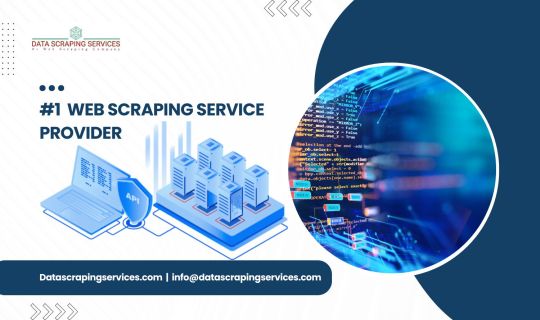
Leafly.com Dispensary Listings Scraping
Leafly.com Dispensary Listings Scraping: Unlocking Market Insights & Business Growth. In the rapidly growing cannabis industry, having access to accurate and up-to-date dispensary data is crucial for businesses looking to expand their market reach, improve their marketing strategies, and gain a competitive edge. Leafly.com Dispensary Listings Scraping enables businesses to extract structured and verified dispensary information from Leafly.com, one of the leading platforms for cannabis product listings and dispensary details.
At DataScrapingServices.com, we provide high-quality dispensary data extraction to help businesses optimize their marketing efforts, generate leads, and drive business growth.
Key Data Fields
With Leafly.com Dispensary Listings Scraping, businesses can access a wealth of valuable data, including:
- Dispensary Name
- Location
- Street Address
- City
- State
- ZIP Code
- Phone Number
- Email Address (if available)
- Website URL
- Operating Hours
- Product Listings & Categories
- Customer Ratings & Reviews
- Pricing Information
- Promotions & Discounts
Having access to this structured data allows cannabis retailers, marketing agencies, suppliers, and investors to make data-driven decisions and enhance their business strategies.
Benefits of Leafly.com Dispensary Listings Scraping
1. Targeted Marketing & Lead Generation
With verified dispensary contact details, businesses can create highly targeted marketing campaigns, ensuring that their products and services reach the right audience. This improves lead conversion rates and maximizes return on investment (ROI).
2. Competitive Analysis & Market Research
By analyzing pricing trends, customer reviews, and product availability, businesses can gain insights into the competitive landscape and refine their strategies accordingly. This helps in identifying market gaps and business opportunities.
3. Supplier & Vendor Expansion
For cannabis wholesalers, manufacturers, and suppliers, having a comprehensive dispensary database allows them to reach out to potential clients efficiently, expanding their B2B partnerships and distribution networks.
4. CRM Enhancement & Business Database Management
A well-structured and updated dispensary database improves customer relationship management (CRM), ensuring that businesses can effectively track and engage with dispensaries. This reduces data redundancy and enhances communication.
5. Optimized Digital Advertising & Email Campaigns
With accurate email addresses and contact details, businesses can execute personalized email marketing campaigns, promoting new products, special discounts, and industry insights. This helps in building brand loyalty and increasing customer engagement.
6. Investment & Expansion Opportunities
Investors and entrepreneurs looking to enter the cannabis industry can use Leafly.com Dispensary Listings Scraping to identify profitable locations, high-demand products, and potential business partners. Having structured data ensures better investment decisions and market expansion strategies.
Best Data Extraction Service Provider
Walmart Product Listings Scraping
G2 Business Directory Scraping
Scoot.co.uk Business Listings Scraping
Leafly.com Dispensary Listings Scraping
Thomsonlocal.com Business Directory Scraping
HomeDepot.com Product Data Extraction
Canpages.ca Business Listings Scraping
Kogan Product Details Extraction
MerchantCircle Business Directory Scraping
Scraping BBB.org Verified Company Information
Best Leafly.com Dispensary Listings Scraping Services in USA:
Fort Worth, Louisville, Wichita, Boston, Virginia Beach, New Orleans, Philadelphia, Orlando, San Francisco, Tulsa, San Jose, Seattle, Columbus, Oklahoma City, Raleigh, San Francisco, Washington, Las Vegas, Colorado, Nashville, Bakersfield, San Diego, Milwaukee, Denver, Fresno, Orlando, Sacramento, Omaha, El Paso, Atlanta, Memphis, Mesa, Indianapolis, Jacksonville, Kansas City, Austin, Dallas, San Antonio, Long Beach, Fresno, Albuquerque, Colorado, Houston, Sacramento, Long Beach, Chicago, Charlotte, Tucson and New York.
Conclusion
Leafly.com Dispensary Listings Scraping is a powerful solution for businesses, marketers, and investors aiming to capitalize on the growing cannabis industry. By leveraging accurate and up-to-date dispensary data, companies can enhance their marketing efforts, streamline lead generation, and gain valuable market insights.
For Leafly.com Dispensary Listings Scraping Services, contact [email protected] or visit DataScrapingServices.com today! 🚀
#leaflydispensarylistingsscraping#leaflydispensarydataextraction#leadgeneration#datadrivenmarketing#webscrapingservices#businessinsights#digitalgrowth#datascrapingexperts
0 notes